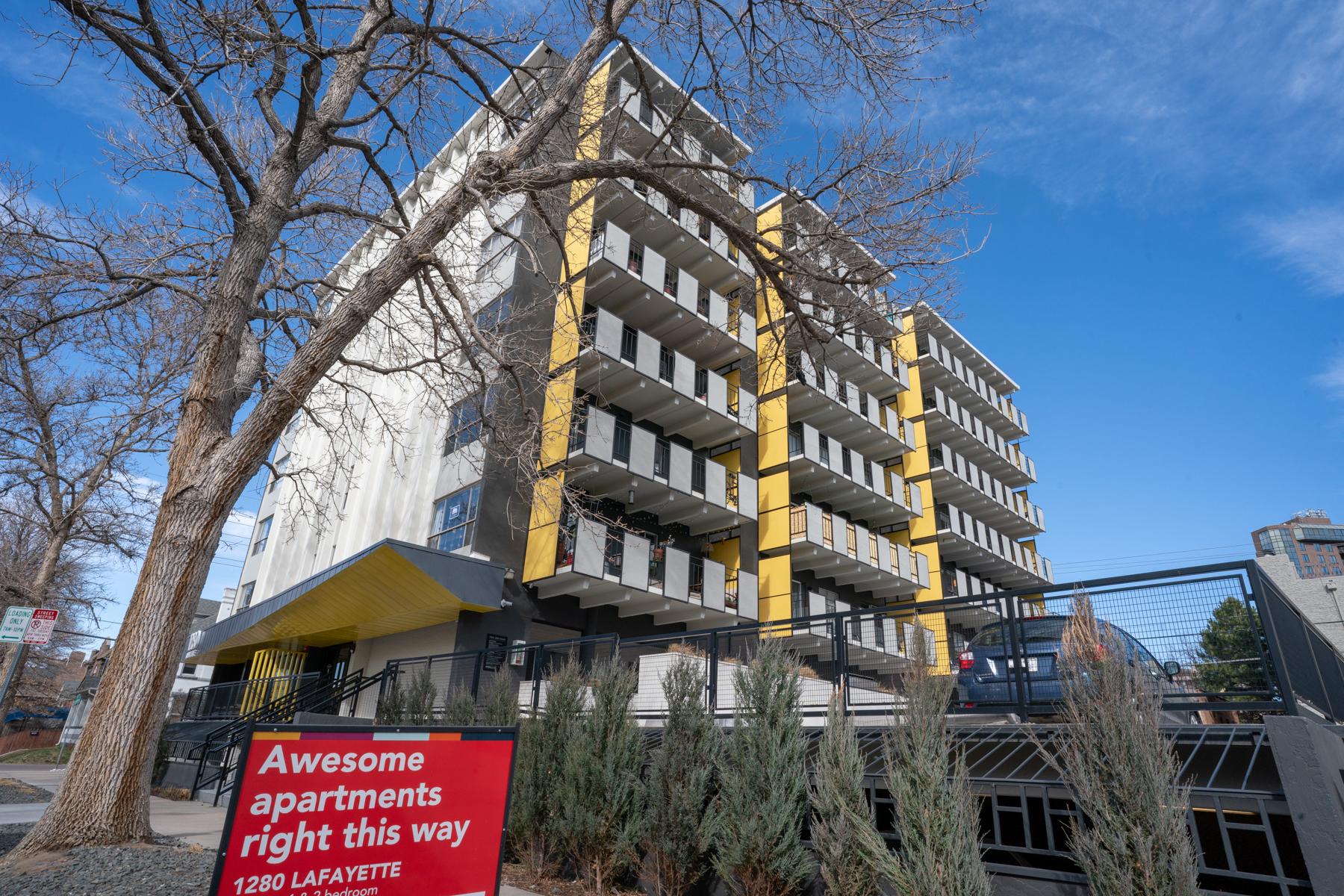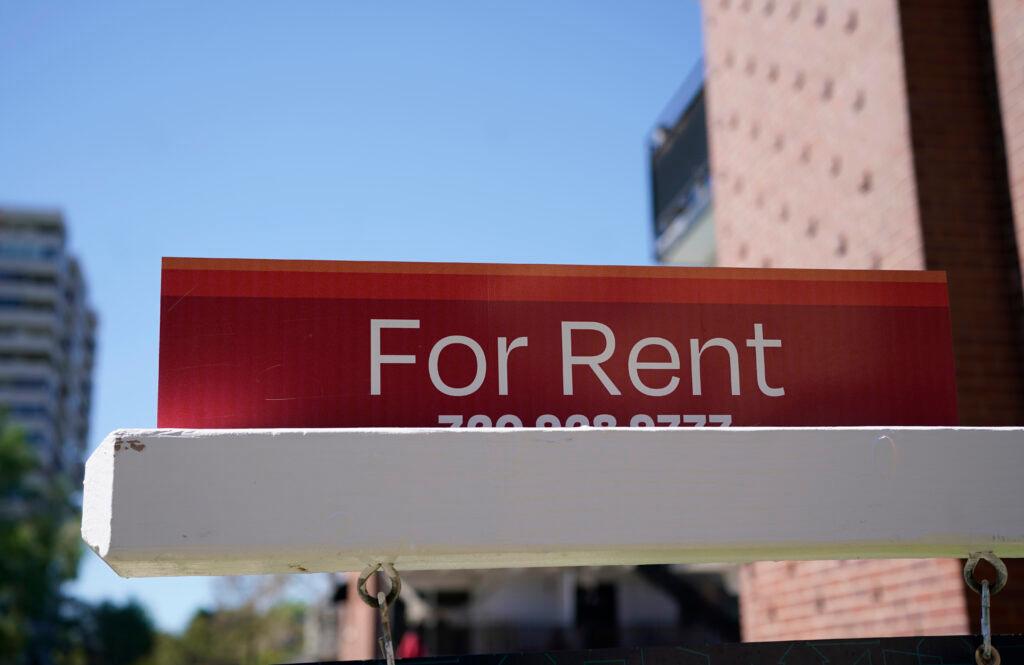
Nobody loves moving, but Matthew Doucette was looking forward to at least one part of his recent rental search. He knew that Colorado lawmakers had recently passed a law to reduce the cost of rental applications. He wanted to try it out.
The law, HB23-1099, was meant to save renters from paying for a new background check with each application. Instead, it says they can pay for one background check and bring it to multiple landlords.
“If I could pay $50, or even $100 upfront … I was very excited about that,” Doucette said.
But as he and others have learned, the reality isn’t nearly so simple.
Nobody seems to know where to actually get one of these portable background checks. And while CPR News identified one service provider that says it can meet the requirements of the law, it could be a costly and complicated process for tenants. Meanwhile, landlords say that very few people are providing their own background checks, despite the new law taking effect last summer.
We started reporting on the topic after receiving a question from another renter named Matthew — in this case, a math tutor in Lafayette named Matthew Lundy — through CPR’s Colorado Wonders feature. The two Matthews had the same experience. Neither could figure out how to take the very first step: getting a “portable” background check.
“We have found several tenant screening services, but most seem to be marketed towards landlords, rather than tenants,” Lundy wrote to Colorado Wonders. “We are also unsure if any of these reports on these services meet the requirements of the law.”
Indeed, a quick search of Reddit turned up plenty more people with similar complaints: “I’ve looked everywhere.” “Everyone knows about the law. No [one] knows where to get one.” “I’m still lost here…” “Very disappointed with the entire situation.”
Here’s what we learned.
What services can provide a 'portable' background check in Colorado?
In short: CPR News identified several services that might fit the bill. Only one confirmed that it could meet the requirements of the bill, and even they said it could be costly and a bit complicated to get all the required information.
The new law says that, in many cases, landlords must accept a “portable screening report,” also known as a background check, that is commissioned by the tenant. But landlords don’t have to accept just any old report.
The report must be generated by a third party and include the following information about the tenant:
- Name
- Contact information
- Verification of employment and income
- Last-known address
- Rental and credit history in jurisdictions they’ve lived
- A criminal history record check for all federal, state, and local convictions
And there are two other requirements:
- The report must have been generated within the last 30 days
- The landlord must be able to get a copy of the report directly from the reporting agency
If the report fails any of those requirements, the landlord would be allowed to reject it — likely forcing the tenant to pay the landlord for a background check instead.
The most promising lead was from the Apartment Association of America’s TenantAlert, which offers screening reports directly to tenants at a total cost of $55 or more. However, even that service may still fall short of some requirements.
“To meet Colorado's requirements, they would need to order at least our Comprehensive tenant screening package for $39.99 which includes a full credit, criminal, eviction, address history, and income estimate report,” wrote marketing director Alexandra Alvarado in an email.
“Then they would need to add on an employment verification for $15 so that our staff calls the current employer to verify pay and employment status. The total would come out to $54.99. When the applicant gets the report, they can print and share it with their prospective landlord or property manager.”
But there are a couple potential problems. If the landlord wants to directly get a copy, there’s no automatic option for sharing a report from the TenantAlert website. Instead, Alvarado said, the tenant would have to call or email TenantAlert to make that request.

Additionally, the law calls for a records check for all “local” convictions, which is more intensive than what landlords typically require. Technically speaking, a landlord could require the tenant’s report to include checks of individual counties where the person has lived, which would cost them about $20 per county through TenantAlert. That could add up quickly.
Alvarado said it’s unlikely that a landlord would actually need to see those extra county-level checks. The tenant could initially get just the basic report, and then go back and get the additional county checks later if a landlord requires. But, needless to say, it’s a little complicated and the costs could quickly pile up.
“It’s so crazy. These laws get passed, and then you look at them. If you’re the screening provider, this doesn’t make any sense,” she said. “Nobody’s prepared for this, there’s no screening company that I’ve ever heard of that has all of this already built out.”
If there’s enough demand, she said, companies like AAOA might eventually build out products that are more customized to Colorado’s law.
Another option: Tenants could pay one landlord to run the background check, and then use the new law to request a copy of the resulting report. In fact, some services provide a copy to the tenant as well. They could then likely bring that report to other landlords, although there's no guarantee that the landlord will have to accept it if it doesn't meet all the requirements of the law.
CPR News also identified several other potential matches, but couldn’t confirm if any of them actually fulfilled the law’s requirements.
- TransUnion SmartMove. The bill’s sponsors suggested this service could be helpful. A $45 “SmartCheck Pro” package is advertised as including criminal background reports, a credit report, an “eviction related proceedings” report and an “income insights” report. That sounds like it ticks the boxes, but TransUnion didn’t respond in time for this story to confirm if it matched the letter of the law. Additionally, SmartMove is marketed toward landlords. Running a report on yourself is a little tricky and appears to require providing two different email addresses.
- ApplyConnect markets its screening reports to both landlords and tenants. Tenants pay $39.95 and can share the report with three landlords over 30 days. But the service “does not verify contact information, employment/income, or rental history,” a spokesperson said. Instead, it offers an option for applicants to enter such information voluntarily, in a section that must specifically be enabled by the user. It’s unclear if this kind of DIY information meets the law’s requirements. ApplyConnect did not respond to a follow-up question.
- RTenant offers a credit check, criminal check and eviction history for $50, but the service is marketed to landlords, not tenants. The company didn’t immediately respond to a question about whether it met the law’s requirements.
Is anyone actually using the law?
The law requires that landlords post notices to tell potential applicants about their right to provide the background check.
CPR’s review of a dozen local property managers showed that landlords are at least following that requirement. Almost all of them had posted notices about the law on their websites. A couple others buried it deeper in the application process.
But there’s another confusing twist. Landlords can opt out of the new law, choosing not to accept the “portable reports” — but only if the following conditions are met:
- The landlord can’t accept application fees from more than one prospective tenant for the same unit at the same time.
- If the landlord forces the tenant to pay for a background check and the tenant doesn’t end up singing a lease, for any reason, then the background check fee must be refunded
- If landlords run a background check on tenants, they must provide a copy to the tenant
CPR reached out to a dozen landlords to confirm whether or not they would accept portable checks but received only a couple of responses.
“We would accept them, but have not had a single person bring one in or ask to use one,” said Brian Botnick, of Botnick Realty, which has a portfolio of seven properties in Colorado.
Large landlords are receiving very few requests to use portable screening reports, said Drew Hamrick of the Apartment Association of Denver. And when they do, the landlords often don’t know whether to trust the third-party service — so they simply eat the cost of running their usual background check.
But that wasn’t Matt Lundy’s experience as he looked for a home or townhouse last year, often with smaller landlords.
“If I ever even mentioned a portable report, I got ghosted,” he said. That happened four or five times, he estimated.

Rep. Steph Vigil, one of the Democratic sponsors of the new law, acknowledged that the policy has encountered some growing pains.
“That has been a frustration that some people have run into,” she said, referring to questions about where to get a qualifying report. “And I have kind of assumed, since we passed it, that there's going to be kind of an adjustment period. We might have to go back and tweak something later if it needs it.”
But even with the confusion, she argued that the new law was pushing landlords to be more responsible about fees.
Lundy and Doucette have their own ideas for what might help. They suggested the state could try to set up its own service. Alternatively, Doucette said, the government might offer a list of companies that say they can provide the service: “‘We're not necessarily endorsing them, but these products will work,’” he suggested.
Democratic Rep. Mike Weissman, another sponsor of the measure, said he would keep track of the law’s effects and look for ways to improve it, noting that it was meant to lower housing costs by “eliminating expensive and unnecessary redundant background check fees.”
He wrote in a text: “I remain committed to continuing to look at this area of law and undertaking additional legislation if necessary to help renters save money.”
Want to share your experience with Colorado’s new rental laws? Email the reporter.









